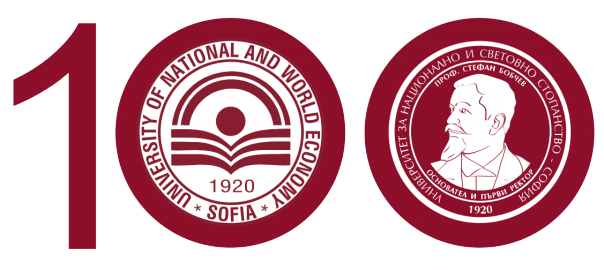Join the Writing Group for Academics
Date: February 16, 2022
Topic: Ask the Expert: Academic Writing and Publishing

Join the Writing Group for Academics
Date: February 16, 2022
Topic: Ask the Expert: Academic Writing and Publishing

Continue reading 4th World Conference on Research in Teaching and Education


Dear Colleagues!
Publishing house Wiley is pleased to invite researchers and authors, lecturers, graduate, and undergraduate students, and librarians to participate in the fall webinar series. Register for interesting sessions to participate in webinars or access their presentations’ records and slides.

III Academic Writing Conference
Research Writing: Teaching Approaches and Assessment Practice
October 30, 2021 http://nwcc-conference.ru/
Registration http://nwcc-conference.ru/registration Continue reading III Academic Writing Conference

Dear ELT Community member,
The English Language Testing Society (ELTSociety) is pleased to invite you to register for our inaugural 2021 ELTS Virtual Conference at no cost, taking place on October 15th and 16th, 2021. Registration is now full but please join our waitlist today.

Dear members of ASEP!
NEIKON invites you to take part in Crossref LIVE Russia
Date: September 17, 2021
Broadcast start: 10:00 (Moscow time)
The online broadcast will be organized within the framework of the Special event “Scientific information and scientific resources in the conditions of the lockdown 2020-2021″.
Continue reading NEIKON invites you to take part in Crossref LIVE Russia

Although writing centers have been around for thirty or more years, academians still struggle to understand the essential role and purpose of these tutoring centers; students and faculty alike tend to think of the center as a place limited to remediation because there is not a clear understanding of the tutorial instruction and methodology that is implemented in these centers. In other words, the writing center is perceived as a place where only bad writers go to learn how to write, and it is the responsibility of the writing center to perfect students’ grammar skills so that afterwards, they return to the classroom as “better writers” and faculty members can then grade students’ essays without having to worry about certain problems.
Since this concept is so common, it is important to understand where this idea originated. The majority of collegiate-level writing centers were created in reaction to the 1970’s “literacy crisis” and the subsequent “back-to-basics” movement in academics. “Initially conceived as a means of providing supplementary instruction for inadequately prepared students, writing centers were too often viewed from the outside as little more than remedial services or “fix it” clinics where students memorized comma rules and mended fragments.” This “fix it” shop mentality, unfortunately, still prevails in some academic settings. Thus, the question of “what is the purpose and role of a writing center” remains unanswered.
The Baylor Writing Center Tutor Guidebook defines a writing center as a “beyond-the-classroom space where students can explore confusing or challenging educational issues through dialogic relationships.” In other words, a writing center is a place for conversation and dialogue. This means that a writing center is not a place for monologues or one-sided instruction. Tutors do not take on the role of professor or expert, meaning that tutors do not edit, correct, or tell students how to “fix” their papers. Rather, writing centers are founded on the idea that tutors and students work collaboratively through open communication to discover effective writing strategies and approaches to reading and writing that are particularly useful to the individual student.
Writing centers are not tutor focused; they are student-centered. They seek to enhance students’ self-worth and confidence by working within non-evaluative relationships of trust. We believe that absence of evaluation by the tutors allows the students to express concerns and doubts, take risks, draw on personal resources and knowledge, and make choices about their work. This approach is a useful strategy that creates a low-risk environment that promotes student self-confidence and autonomy, and, more importantly, can serve students throughout their education and beyond as they enter the workforce. It also helps students become confident writers and better writers over time.
Through these practices, writing centers aim to change student perspectives on writing and our centers. Because writing centers tend to focus on the individual student more than a single paper and seek to tackle big problems (higher-order concerns such as voice, organization, content) before little ones (lower-order concerns such as grammar, citation), a student’s attitude towards writing shifts. They become more aware and comfortable with the writing process as a whole (brainstorming, analysis, drafts, revisions, etc.) and begin to develop the fundamental skills required to write for any discipline. Additionally, students and faculty alike realize that writing centers are not an editing “day-care” service—we do not correct students’ papers from start to finish, we do not correct every error, we do not let students drop off their papers and expect these types of services, we do not support the mentality that a visit to our center will yield a perfected paper, and we firmly reject the notion that our center is a place where bad writers come to be better writers.
Writing centers have come a long way since the 1970’s—we went from “fix-it” shops to creating our own theory, rhetoric, and discussion about writing centers. Each writing center is different and unique, but we all have the same core values and responsibilities. We embrace the idea that no matter what level of writing our students are at when they come into our centers, it is our duty to look beyond the students’ “lack of preparation” and meet students wherever they are in their learning. Our mission as administrators, professors, and tutors, is to work with our students to move forward. We must continue to make progress so that our students can arrive at a place of success, satisfaction, retention, and understanding.
International Writing Centers Association. (n.d.) Writing Center Concept. (Originally produced by Muriel Harris and published by The National Council of Teachers of English in 1988.) Retrieved from http://writingcenters.org/resources/writing-center-concept/
Penti, M. E. (2007). Baylor School Writing Tutor Manual. Retrieved from
http://mail.baylorschool.org/~cowens/writingcenter/Baylor%20School%20Writing%20Tutor%20Manual.pd

Creativity involves looking at issues from different perspectives, connecting and merging concepts, and questioning traditional assumptions. This skill isn’t limited to writers, musicians, or artists; it’s a valuable skill for all kinds of people. Creativity is akin to a muscle, so you must exercise it regularly. And that involves stretching and challenging it every day. Here are 8 surefire tips to boost your creativity.

Jubilee Scientific Practical Conference with International Participation: 100 Years of Foreign Language Education at the UNWE – with View to the Future organized by the Foreigh Languages and Applied Linguistics Department under the patronage of the Rector of UNWE
Begins: Friday, 30 October 2020
Ends: Saturday, 31 October 2020
Continue reading 100 Years Foreign Language Education at the UNWE – with View to the Future